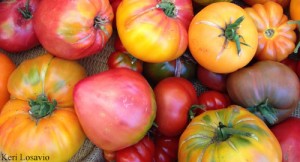 All established dietary triggers of gout flares are associated with an increase in serum urate. Likewise, high serum urate is a major risk factor for gout. Gout flare occurs when the innate immune system responds to the monosodium crystals deposited in joints. Established food triggers of gout flares include alcohol (especially beer), purine-rich foods, red meat, seafood and sugar-sweetened beverages. Until now, however, tomatoes have been an anecdotal trigger.
All established dietary triggers of gout flares are associated with an increase in serum urate. Likewise, high serum urate is a major risk factor for gout. Gout flare occurs when the innate immune system responds to the monosodium crystals deposited in joints. Established food triggers of gout flares include alcohol (especially beer), purine-rich foods, red meat, seafood and sugar-sweetened beverages. Until now, however, tomatoes have been an anecdotal trigger.
A new descriptive, observational study reveals that tomato consumption is associated with elevated serum urate levels, suggesting that there is a biological basis for the association between tomatoes and gout.1
“To our knowledge, this is the first time tomatoes have been associated with serum urate, suggesting that the avoidance of tomatoes by people with gout may have a biological basis,” writes Tanya J. Flynn and colleagues of the University of Otago in New Zealand in the August 2015 issue of BMC Musculoskeletal Disorders.
This study was designed to measure the frequency of tomato consumption as a self-reported trigger of gout attacks. The investigators evaluated 2,501 New Zealand men and women with gout, including Maori and Pacific Island participants. The researchers found 71% of individuals with gout have one or more gout-trigger foods. Moreover, when patients self-reported triggers of gout attacks, tomatoes were the fourth most common trigger and were reported by 20% of participants.
Because all other dietary triggers of gout are positively correlated with serum urate levels, the investigators hypothesized that tomatoes would also be associated with an increase in serum urate levels. They found this association was true, and it held true in all cohorts included in their research: Atherosclerosis Risk in Communities (ARIC), Cardiovascular Health Study (CHS) and Framingham Heart Study (FHS) combined cohort. The association was evident in both sexes, although the effect was larger in men. The researchers found the association between tomato consumption and serum urate levels was maintained even after they adjusted for other known food triggers.
“Here we provide evidence that tomato consumption is positively associated with serum urate in European Caucasians, suggesting that the avoidance of tomatoes by gout patients (due to identification as triggers of acute gout attacks) is not an unfounded practice,” write the authors in their discussion. “Whilst our data cannot support the claim that tomato consumption is a trigger of gout attacks, we provide support for the hypothesis that tomato consumption may trigger gout attacks through increasing serum urate.”
The investigators call for further studies to determine whether or not tomatoes actually cause serum urate levels to increase. However, they note, “The association we have seen between tomatoes and serum urate supports the hypothesis of a possible effect of tomatoes on either hepatic urate production or renal uric acid handling.”
They also suggest that tomatoes may influence urate levels via increased production.
Lara C. Pullen, PhD, is a medical writer based in the Chicago area.
Reference
- Flynn TJ, Cadzow M, Dalbeth N, et al. Positive association of tomato consumption with serum urate: Support for tomato consumption as an anecdotal trigger of gout flares. BMC Musculoskelet Disord. 2015 Aug 19;16:196. doi: 10.1186/s12891-015-0661-8.


